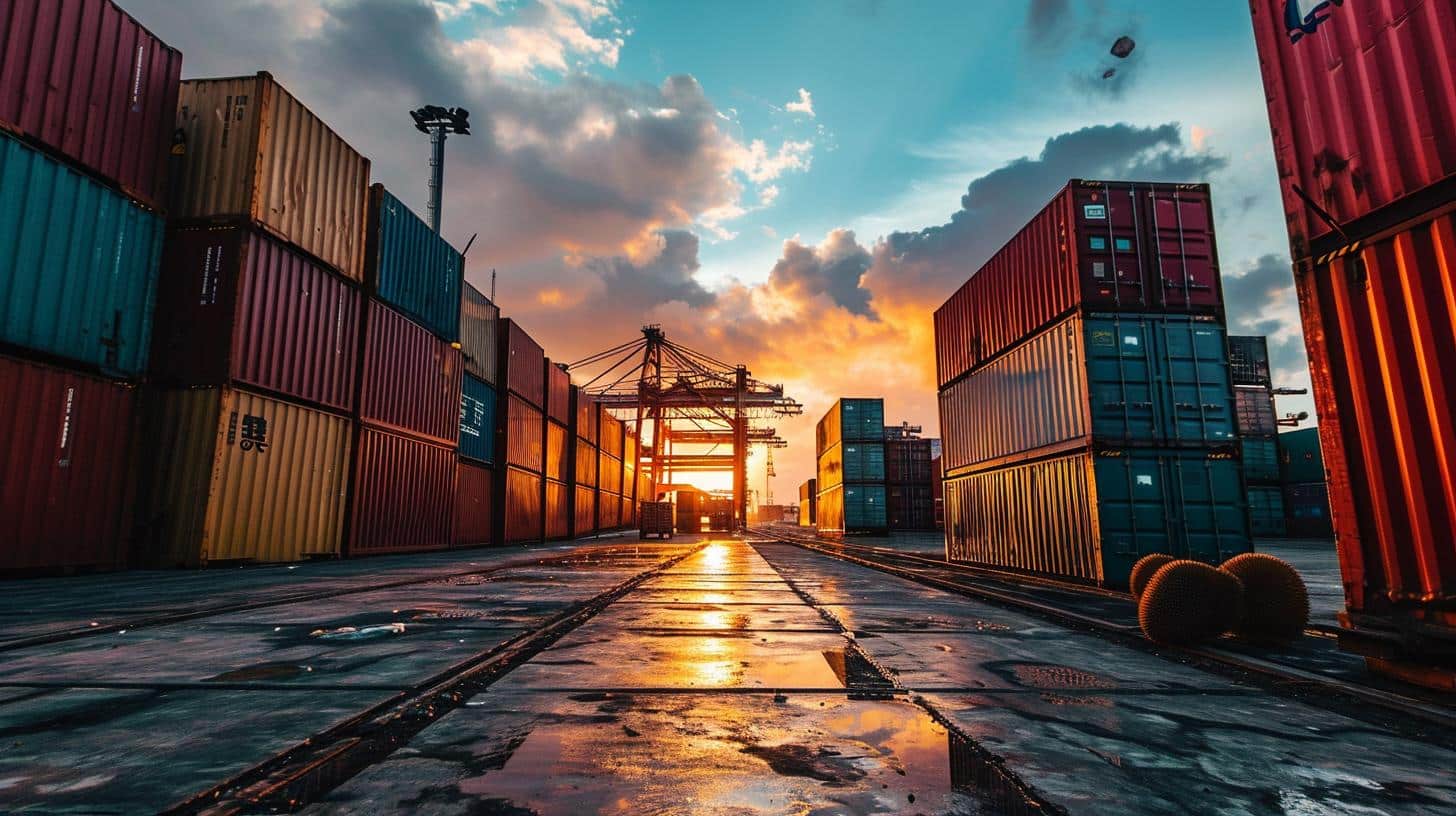Chinese Investors Scramble to Sell Overseas Properties Amid Shaky Economic Conditions
Chinese investors, who used to favor property as their primary investment for wealth accumulation, are now scrambling to sell their overseas properties due to unstable economic conditions. Small apartments and condos in Southeast Asia, particularly in Thailand, were popular choices for the Chinese middle class in the late 2010s due to their affordability and geographic proximity. However, economic uncertainties, exacerbated by the ongoing pandemic, have prompted Chinese property owners to look for buyers for their investments. A Guangdong-based property agent is currently representing more than 200 middle-class Chinese families who are looking to sell their properties in Southeast Asian countries.
China’s Shipping Containers Pile Up at Overcrowded Port as Overseas Orders Dwindle
Yantian International Container Terminal in Shenzhen is facing an overflow of empty shipping containers as overseas orders continue to dwindle. Despite the Lunar New Year holiday ending weeks ago, not all truck drivers in Shenzhen have returned to work. Many trucks with no containers on their long trailers are parked on the roadside, stretching nearly a kilometer. The port has over 15,000 registered truck drivers, but only around 2,000 of them currently have work. This situation is a result of reduced overseas orders, leading to an excess of empty containers at the port.
China’s Bid to Lure Overseas Tech Talent Home Hits a Snag: Toxic Work Culture
China’s efforts to attract overseas tech talent back home are facing difficulties due to the country’s toxic work culture. Many overseas tech professionals, who were previously employed abroad, are hesitant to return to China for job opportunities. Even amid mass layoffs in countries like Canada, Chinese software engineer Mark Liu is still seeking opportunities in Canada rather than in his home country. The toxic work culture in China’s tech sector is a major deterrent for many overseas talent, causing them to look for job opportunities elsewhere.
China’s Durian Demand a Godsend for Philippine Trade, Raises Concerns for Other Asian Countries
China’s increasing demand for durian has been a significant boost for Philippine trade but has raised concerns for other Asian countries. Davao City in the Philippines, known as the “Durian Capital,” is facing a shortage of durians as a large portion of the harvest has been reserved for China. The bilateral agreement between China and the Philippines, which opened the door for fresh Philippine durians to enter the Chinese market, has created a high demand for the fruit. While this agreement benefits Philippine trade, it raises concerns for other Asian countries, as they may face competition and a decrease in durian supply.
Chinese Firms Respond as Foreign Buyers “Don’t Want Anything Made in China”
Chinese firms are responding to the trend of foreign buyers avoiding products made in China. Norman Cheng, the CEO of Strategic Sports, one of the world’s largest helmet makers, plans to open a smart factory in Vietnam as a strategic move away from China. The US$30 million factory in Vietnam will replicate the plant Cheng recently opened in Guangdong province, China. Many Chinese firms are shifting their operations to other countries in response to the growing preference for non-Chinese products among foreign buyers. This shift is driven by self-preservation and aims to maintain competitiveness in the global market.
Analyst comment
1. Negative news: Chinese Investors Scramble to Sell Overseas Properties Amid Shaky Economic Conditions.
Market prediction: The market for overseas properties will experience a decrease in demand and a potential price drop as Chinese investors rush to sell their properties, leading to a buyer’s market.
2. Negative news: China’s Shipping Containers Pile Up at Overcrowded Port as Overseas Orders Dwindle.
Market prediction: With dwindling overseas orders, the shipping industry will face challenges as the overflow of empty containers at the port indicates reduced global trade activity, impacting the market for shipping services.
3. Negative news: China’s Bid to Lure Overseas Tech Talent Home Hits a Snag: Toxic Work Culture.
Market prediction: The difficulties presented by China’s toxic work culture will make it harder for the country to attract and retain overseas tech talent, potentially leading to a brain drain and hampering China’s tech industry’s growth and innovation.
4. Positive news: China’s Durian Demand a Godsend for Philippine Trade, Raises Concerns for Other Asian Countries.
Market prediction: The increasing demand for durian from China benefits Philippine trade, which could see a boost in durian exports. However, other Asian countries may face competition and a decrease in durian supply, impacting their own markets.
5. Negative news: Chinese Firms Respond as Foreign Buyers “Don’t Want Anything Made in China”.
Market prediction: Chinese firms shifting their operations to other countries in response to foreign buyers’ preference for non-Chinese products will further impact China’s manufacturing industry, potentially leading to a decline in demand and competitiveness for Chinese-made products in the global market.













